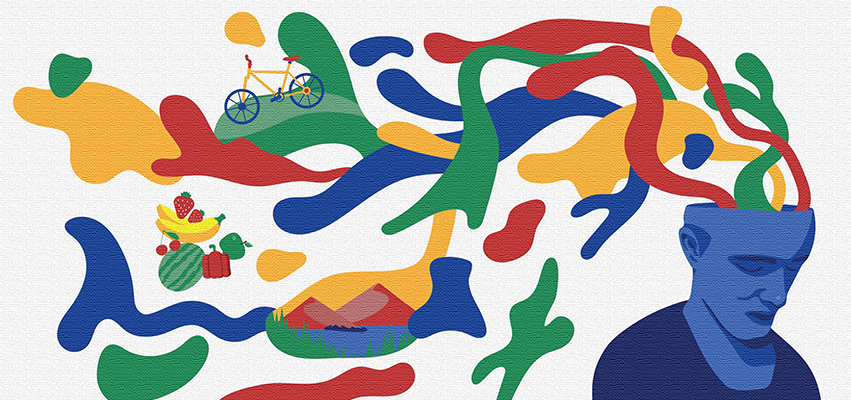Prioritizing Wellness During COVID-19

We may be on the precipice of one of the greatest mental health events in human history. During these unprecedented times, we have lost our sense of safety to an invisible enemy. We live under a constant state of grief, in a forced state of isolation. And it is scary to think about the potential long-term consequences we will be facing in a post-COVID-19 world.
As a result of social distancing practices and the extended shelter-in-place order, individuals and communities are learning to adapt to a new normal. For many, this new norm includes separation from friends and loved ones. Significant loneliness and isolation are affecting millions in the midst of this pandemic. Of concern, considerable mental and physical health consequences have been shown to result from extreme isolation over prolonged periods of time.
The Effects of Isolation and Trauma
From research, we know that loneliness and social isolation have been linked to a 30% increased risk of having a stroke. We know that extreme loneliness and isolation can be as dangerous as smoking 15 cigarettes per day or having a severe alcohol use disorder. We also know that loneliness and isolation can contribute to suicidal behavior, Alzheimer’s disease and degradation of the cardiovascular system.
It’s important to differentiate the term loneliness from “being alone”—they are not the same thing and should be thought about and treated differently. Spending time alone is normal and healthy for all of us. Being alone can provide opportunities for growth and development.
Trauma is another significant concern of the COVID-19 pandemic, and each of us is experiencing different levels of traumatic exposure. Many are traumatized by the loss of our sense of safety, by the lack of social connectedness, and by missing those whom we love the most. Our frontline healthcare workers and first responders are especially vulnerable to trauma exposure.
The U.S. rate of suicide has been on the rise over the last two decades, and with the added stressors and unique challenges of COVID-19, this trend is expected to continue. There have already been reports of doctors and other medical staff dying by suicide and making attempts on their lives. These are the brave souls fighting to save as many lives as they can, while risking exposure to themselves and their families. Many are living in isolation within their own house because they can’t bear to think of putting their spouses and children at risk. While our healthcare heroes carry the heavy burden of saving lives, they are simultaneously robbed of the physical support of those most dear to them.
Take Time to Take Care of You
Fortunately, there are steps we can take to protect ourselves. If there was ever a time to take care of ourselves, both mentally and physically, it is now. If we are to prevail, we need to develop a certain level of mental toughness. How can this be achieved? Through deliberate action.
This is our wake-up call—our physical and mental health need to be at the top of our priority list. Make sure to plug time into your daily schedule to include the following key initiatives to help maintain your mental wellness.
- Exercise. Any exercise. Take walks, watch YouTube videos featuring home workouts, and use your gym equipment if you have it. If someone you live with likes to exercise, join them! If not, use this amazing tool as a relationship builder and do it together. As they say in the body building industry: “Those who train together stay together!”
- Eat healthy (or at least healthier). One way you can start to reduce calories is by tracking your food macros—there are a ton of free apps out there. One of the easiest is called MyNetDiary. Get used to honestly tracking your food intake. You may find that just the activity of monitoring alone helps you to eat healthier. Be proactive!
- Sleep. Sleep more. Make sleep a priority. You should be targeting 7 to 7½ hours a night. If you have trouble sleeping or have a sleeping disorder, get treatment for it. Cognitive Behavioral Therapy for Insomnia (CBT-I) is incredibly successful and has improved sleep in even the most severe cases of insomnia.
- Develop a routine, even when you are stuck at home. This is also good for your children. Sleeping until noon and watching TV all day is unlikely to help develop mental toughness. Keep your kids active. Get them outside in the yard for 60 minutes a day. Build a schedule that includes regular mealtimes, exercise, homework time and bedtime. Get the entire family working as a unit, almost in a business-like manner.
- Stay connected. Call friends, family, video chat. If your parents or grandparents are isolated, call them often and get the kids on video chat. Make sure they have all the medication and supplies they need. If they don’t have them, do what you can to help. There is evidence that this pandemic is disproportionately affecting the elderly. They were vulnerable to loneliness before all this began and are even more so now.
Take time to take care of you—practice these tips to help manage the stress of daily life. Much of the challenge lies in simply getting started. Identify a wellness tip to start this week, put it in your schedule, and set a specific and measurable goal. By doing this, you are more likely to maintain and succeed.
Finally, if you are feeling overwhelmed by fear, panic, loneliness or isolation, know that professional support is available locally. Whether you’d like to talk with a counselor, begin a group therapy wellness service, or enroll in telehealth services, support is here. Contact the UnityPoint Health - UnityPlace Access Center at 1-888-311-0321 to connect to care today. PM
- Log in to post comments

